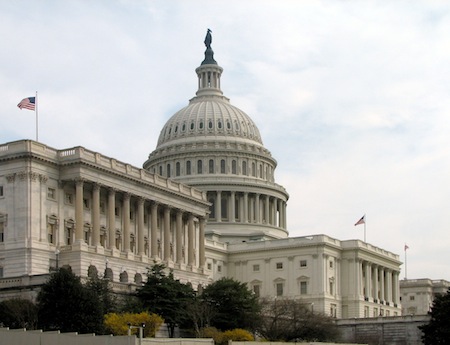House Dems Dissatisfied With Wheeler Answers

The smarter way to stay on top of broadcasting and cable industry. Sign up below
You are now subscribed
Your newsletter sign-up was successful
Some high-prolife House Democrats felt FCC Chairman Tom Wheeler's responses at a House Communications Subcommittee FCC oversight hearing Nov. 18 left something to be desired.
According to a copy of a letter dated Dec. 2, a quintet of Dems including Frank Pallone (N.J.), ranking member of the Full Energy & Commerce Committee, said they appreciated his willingness to testify before the committee--Wheeler has commented on just how many times he has been called to the Hill in the past few months—but they were looking for a lot more information than they got. They even suggested the chairman might not have been taking all those questions as seriously as the folks asking them.
They asked for more information on network resiliency, a new set-top box security regime and the AllVid proposal, Lifeline, and social media and violence.
Singing on to the letter, in addition to Pallone were Reps. Bobby Rush (Ill.), Diana DeGette (Colo.), Yvette Clarke (N.Y.), and G. K. Butterfield.
Republican members often hammer a chairman from the other party, but the letters' tone of mild admonishment for what seemed perceived dismissiveness struck some Hill watchers as unusual coming from the same party.
"We are concerned that at our most recent hearing you were unable to give complete responses to nearly half of the questions posted directly to you by Democratic members of the Subcommittee," adding: "Our members take their oversight responsibilities very seriously, and they expect witnesses before the Subcommittee to treat their testimony in the same way."
The FCC's congressionally-mandated initiative to come up with a successor to the CableCARD after Congress eliminated the set-top integration ban was a topic of much conversation at the hearing. DeGette, Butterfield and Clarke were all unsatisfied with Wheeler's responses and included those as follow-ups, according to the list of questions submitted.
The smarter way to stay on top of broadcasting and cable industry. Sign up below
Butterfield also had questions about the progress of FCC lifeline reforms, while Pallone, whose state was hit hard by Hurricane Sandy, wanted better answers on network resiliency.
Rep. Rush had asked Wheeler at the hearing whether there was anything the FCC could do about use of the Internet for hate speech by gangs and terrorists. Wheeler had said the FCC's authority was limited, but Rush said he was including the FCC using its bully pulpit status. Wheeler answered that he would call Mark Zuckerberg directly--a staffer told B&C/Multichannel News not long after that pledge that the call had been made, that the two had not talked but their respective staffs had. An FCC spokesperson confirmed Wheeler and Zuckerberg had since talked.
Rush asked Wheeler for that information, too, as well as again asking if the FCC could use "its important voice and stature" to enhance the conversation about gang violence and social media, or perhaps find a way, even given its limited authority of the Facebooks and Twitters of the world, to use its public safety mission to address the use of social media to perpetuate their violent agenda.
An FCC spokesperson would only say that it had received the letter, and questions, and were reviewing them.
Among the other potential friction points between Wheeler and Democrats include his push to eliminate broadcast exclusivity rules, which a number of Democrats have signaled they don't support, and some FCC action on enhanced disclosure of political ads on-air, which Wheeler has signaled is not a priority but apparently is for some members of the committee in the wake of Citizens United and in advance of the 2016 elections.
Contributing editor John Eggerton has been an editor and/or writer on media regulation, legislation and policy for over four decades, including covering the FCC, FTC, Congress, the major media trade associations, and the federal courts. In addition to Multichannel News and Broadcasting + Cable, his work has appeared in Radio World, TV Technology, TV Fax, This Week in Consumer Electronics, Variety and the Encyclopedia Britannica.

